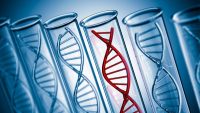Linda and Allison have had a lifelong commitment to wellbeing and overall health. Living in the sunny South, they understand that proper skincare is an essential aspect of everyday life. In 2013 they became business partners creating the groundbreaking probiotic based skin care company – BeBe & Bella, LLC.
Allison Krebs-Bensch, CEO of US Pharmaceutical Corporation, CEO and Co-Founder of BeBe & Bella, LLC followed her father in his original profession as a scientific innovator. As a trailblazer, Allison is always pushing to formulate products around new scientific discoveries. It was in developing a probiotic supplement line, that she devised the idea to develop a skincare system incorporating these powerful microorganisms. A Vanderbilt University graduate, Allison is an Atlanta native who is a thriving Southern businesswoman.
Linda Krebs COO and Co-Founder of BeBe & Bella, LLC. had a fulfilling career as a partner, practice manager, and then President of East Coast operations for one of the largest real estate law firms in the country, Linda welcomed the new challenges that a start-up skincare company would provide. Many of the same administrative functions from the legal realm translated well over to BeBe & Bella, from the promotion of sales and organization of process to oversight of IT, contracts, NDA’s, marketing, and accounting departments. The new areas of e-commerce, graphics, packaging, forging partnerships with retailers, assisting in developing new products, expanding to out of country markets each bring new and exciting experiences which contribute to this being the perfect new career for Linda.
We interviewed Linda & Allison about their thoughts on the newfound role of human microbiomes. New research and advances in the field, their presentation at the Conference their take on the conference program.
Question: How is human microbiome a new protagonist in managing human health?
Linda & Allison:
The study of the human microbiota and their interaction with the various body environments is not so new, the term “microbiome” was first made by J. L. Mohr in 1952, in The Scientific Monthly. What is new are the research technologies such as DNA sequencing and computer modeling that now are available to further the study of microbial genomes and the chemical communications of microorganisms. One would have to agree that the US NIH Human Microbiome Project, launched in 2007, and later the Unified Microbiome Initiative in 2015 promoted the idea that increased knowledge of the human microbiome will transform our understanding of the world. Already, research has led to new precision drugs and therapies that enhance health and fight afflictions such as asthma, obesity, diabetes, infections, and depression. Every area of science and medicine is impacted by a new and important understanding of the role of the balance between the microorganisms in their micro-ecosystems. For us, at BeBe & Bella, even the work done by Stokes and Pillsbury in 1930 (The effect on the skin of emotional and nervous states: theoretical and practical consideration of a gastrointestinal mechanism. Arch Dermatol Syphilol. 1930; 22:962–93) which hypothesized that the emotional state of a person could alter their intestinal microflora, increase the permeability of the intestinal tract and cause inflammation throughout the body (the gut-skin-brain axis) provided important background and validation for our probiotic product line of topical, oral and vaginal products for personal care and skincare..
Question: What are the challenges of preserving and not preserving live probiotics?
Linda & Allison:
There are several important questions related to probiotics such as the strain type, indication of use and efficacy based on the delivery method and administration. Many factors such as the prevention of contact with heat, oxygen and light are variables considered in whether to preserve or not to preserve a live probiotic. Challenges of preserving various strains have been met via methods of freeze drying, microencapsulation and biofilm applications.
Some might consider that administering live probiotics best exhibits their benefits; they proliferate to form a physical barrier, providing protection against pollutants, pathogens and other irritants while stimulating and enhancing the body’s autoimmune system. Non-living probiotics also have positive health benefits. While they will not form an active physical barrier, fragments of probiotic cells alone can stimulate the body’s autoimmune response.
Ultimately, the goal is to deliver probiotics and their benefits, whether living or not, in a vehicle that is most safe and effective for the intended use. Preservatives allow for a longer and stable shelf-life while preventing pathogenic contamination and possible rancidity. Avoiding the use of preservatives for live bacteria allows for the active proliferation of colony forming units to result in optimal and perhaps even faster results. When attempting to preserve a live organism, the proper preservative must be determined to allow for organism compatibility and its ultimate resuscitation.
Question: Having gone through the agenda, what are your views on it and how helpful is it to the targeted audience?
Linda & Allison:
The agenda is packed with speakers who can provide the attendees with insight and a deeper dive into the results of their trials, clinical studies and real-world feedback to possibly spark new relationships and collaborations or add that one missing piece of information that provides a bridge to a new discovery.

Linda & Allison are one of our esteemed speakers at 3rd Edition Marketsandmarkets Next Gen Microbiome and Probiotics- Virtual Conference being held on February 25th -26th, 2021. They will be presenting on the Day 1 of the conference on the topic – ‘V-Bella Homeopathic Boric Acid and Probiotic blend vaginal suppositories: A neglected but important microbiome where probiotics are making a huge difference to women in their self-care self-aware journey.’
To Know more about the presentation, visit our website – https://bit.ly/2X8h7DX
If you wish to learn a great deal from her about the Microbiome Industry, then register online or email [email protected] to book your slot at the conference





